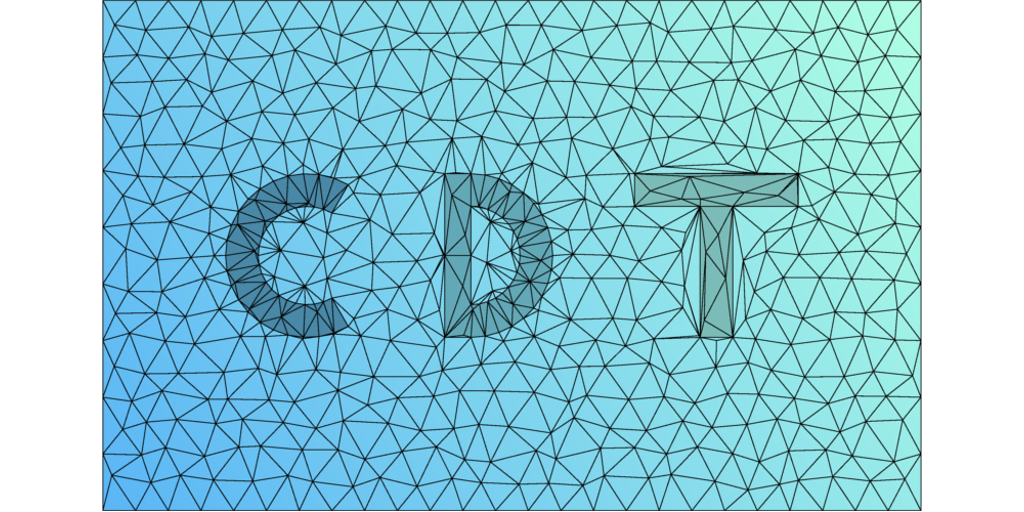CDT-JS is an interactive web app for generating constrained Delaunay triangulations of 2D points, written in JavaScript.
Check out the app here.
How to use
- Insert a set of 2D points to triangulate.
- Random: A random distribution of points may be added by entering the required number of points and clicking the “Generate random vertices” button. The points can be sampled from a uniform or standard normal distribution.
- Import from file: Points may also be imported from a file using the button under “Load vertices from file”. The x and y coordinates of each point should be space- or comma-separated, and each point should exist on its own line.
- Manual entry: Directly add or modify points using the text-box under “Vertex list”, and click the “Reload input data” button.
- Specify the set of edges to constrain, if any.
- Random: Click the “Generate random edge constraints” button to randomly generate the specified number of edge constraints.
- Import from file: Edge constraints can also be imported from a file using the button under “Load constrained edges from file”. Each edge should be specified by the indices to its two end-points in the vertex list. The vertex indices use 0-based indexing, and should be space- or comma-separated.
- Manual entry: Directly add or modify edge constraints using the text-box under “Constrained edge list”, and click the “Reload input data” button.
-
Click the “Triangulate!” button to generate the constrained Delaunay triangulation.
- Explore!
- Click on the visualization to see more information about the points and triangles.
- Locate and visualize a particular point or triangle by its index.
- The indices to the three vertices of each triangle are printed in the last text-box of the control panel.
Performance
Some benchmark results obtained on an Intel Core i7-4712HQ (2.3 GHz), running Google Chrome v70.0 (JavaScript V8).
| N = 100 | N = 1000 | N = 10,000 | N = 100,000 | |
|---|---|---|---|---|
| Random points - uniform distribution, no edge constraints | 1ms | 5ms | 41ms | 570ms |
| Random points - normal distribution, no edge constraints | 1ms | 5ms | 52ms | 837ms |
| Random points - uniform distribution, 0.01N edge constraints | 2ms | 5ms | 65ms | 1.6s |
| Random points - uniform distribution, 0.1N edge constraints | 2ms | 8ms | 232ms | 26.5s |
References
The algorithms implemented here are based on the following papers:
- A fast algorithm for generating constrained Delaunay triangulations, S.W. Sloan, Computers & Structures, 1993.
- A robust efficient algorithm for point location in triangulations, P.J.C. Brown and C.T. Faigle, Technical Report, University of Cambridge, 1997.
